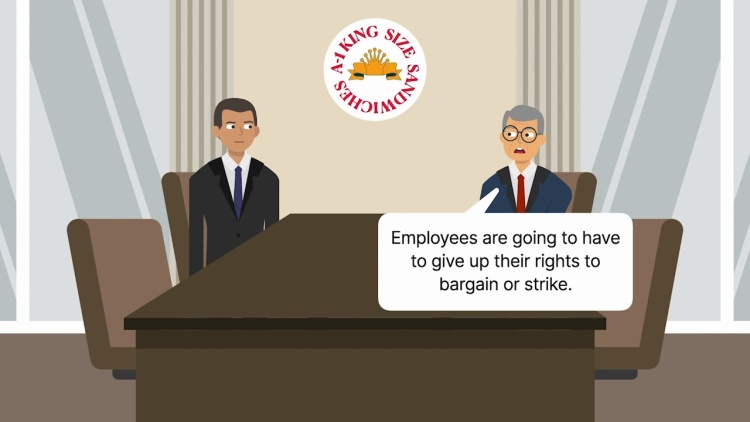National Labor Relations Board v. A-1 King Size Sandwiches, Inc.
United States Court of Appeals for the Eleventh Circuit
732 F.2d 872, 469 U.S. 1035 (1984)
- Written by Rose VanHofwegen, JD
Facts
The National Labor Relations Board (plaintiff) certified a union to represent employees of A-1 King Size Sandwiches, Inc. (A-1) (defendant). A-1 challenged certification, but the board ordered A-1 to bargain with the union. A-1 met with the union 18 times over 11 months, but no collective-bargaining agreement (CBA) resulted. The parties agreed on a few limited terms like paid leaves of absence and grievance and arbitration procedures, but A-1 insisted on retaining total unilateral control over virtually all significant terms like wages, hiring and firing, discipline, and layoff and recall. A-1 also insisted employees give up rights to bargain or strike, without any incentive. In addition, A-1 refused to give the union any say on mandatory bargaining subjects like safety rules, overtime, transfer, and retirement and wanted key issues exempted from the grievance and arbitration procedures. A-1 gave no legitimate business reason justifying its position and even rejected a clause requiring it simply to comply with federal antidiscrimination laws. When the union objected to proposals giving management such broad power, A-1 responded with even broader proposals. The union filed charges asserting that A-1 engaged in “surface bargaining” without any real intent to enter a CBA. The board agreed, finding A-1 committed unfair labor practices by failing to bargain in good faith. A-1 appealed.
Rule of Law
Issue
Holding and Reasoning (Dyer, J.)
What to do next…
Here's why 907,000 law students have relied on our case briefs:
- Written by law professors and practitioners, not other law students. 47,100 briefs, keyed to 996 casebooks. Top-notch customer support.
- The right amount of information, includes the facts, issues, rule of law, holding and reasoning, and any concurrences and dissents.
- Access in your classes, works on your mobile and tablet. Massive library of related video lessons and high quality multiple-choice questions.
- Easy to use, uniform format for every case brief. Written in plain English, not in legalese. Our briefs summarize and simplify; they don’t just repeat the court’s language.





